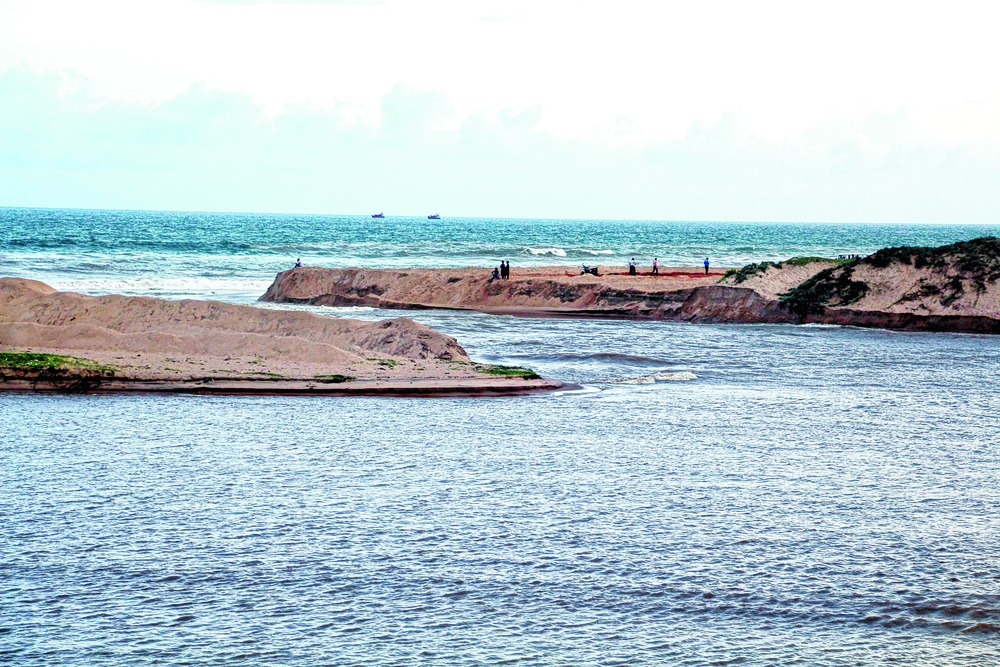
Puri, Sept. 15: The water resources department has reopened the clogged mouth of the Mangala river, facilitating discharge of its water into the Bay of Bengal near Puri, after sustained efforts over the past month.
With silt blocking the river mouth, large amounts of rainwater from areas of Puri district, including Sakhigopal, Brahmagiri and Puri Sadar, had no outlet into the sea. This had created a flood-like situation in parts of Puri and its adjoining areas last month.
The blocked mouth had forced the river to change its course and it created another mouth within 100 metres. This affected the beach in Puri and caused coastal erosion. The gravity of the situation forced the state government's hand and it roped in experts from IIT-Madras to conduct a study on the pattern of tidal waves and change in the river's course. The team decided that the river's natural mouth had to be reopened to arrest sea erosion.
Artatran Sahu, the executive engineer of the irrigation department in Puri, told The Telegraph: "With expert advice, we began our efforts to reopen the mouth, which we have finished now. The mouth was blocked by heavy siltation and advancement of tidal waves. We dredged the mouth for a length of 195 metres and a width of almost 50 to 60 metres. Now, all the water coming from different sources through this river is being discharged into the sea."
He said the opening of another mouth near a hotel had caused panic among local residents. "Now, we have closed that mouth and all the water is being discharged through the river's natural mouth," he said.
The Managala river is part of the Mahanadi river system. It originates near Puri as a branch of the Bhargavi, a tributary of the Mahanadi. Besides drainage water, the city's sewage and wastewater is also released though the river.
Beach Protection Council president Jagannath Bastia said: "It's a welcome move but, the government should conduct renovation work at the mouth every year. Otherwise, it will get blocked again."
He also demanded that the government remove all encroachments near the river. "If they do not keep a regular watch on the course of the river and study its pattern, the same situation may arise again."










